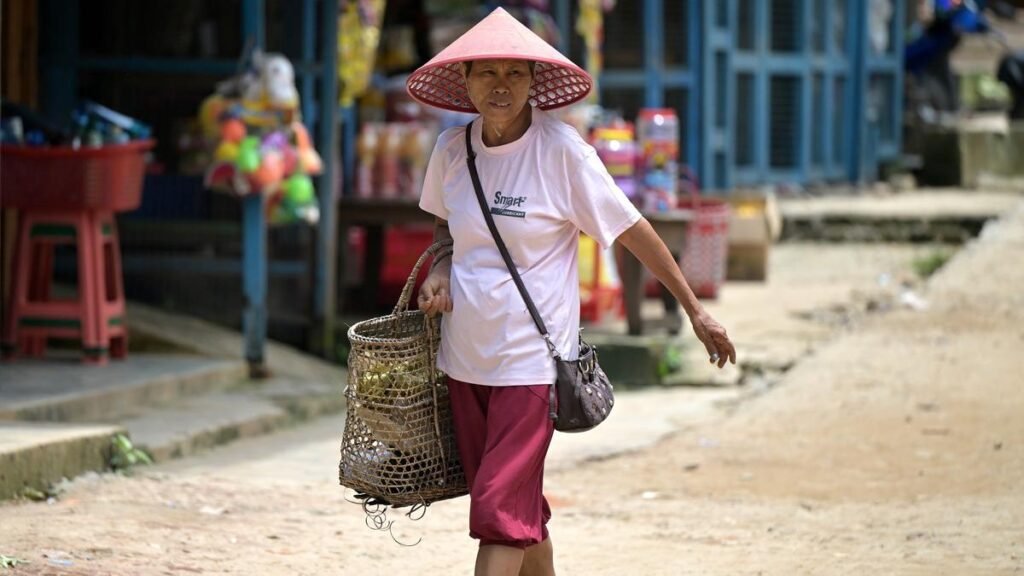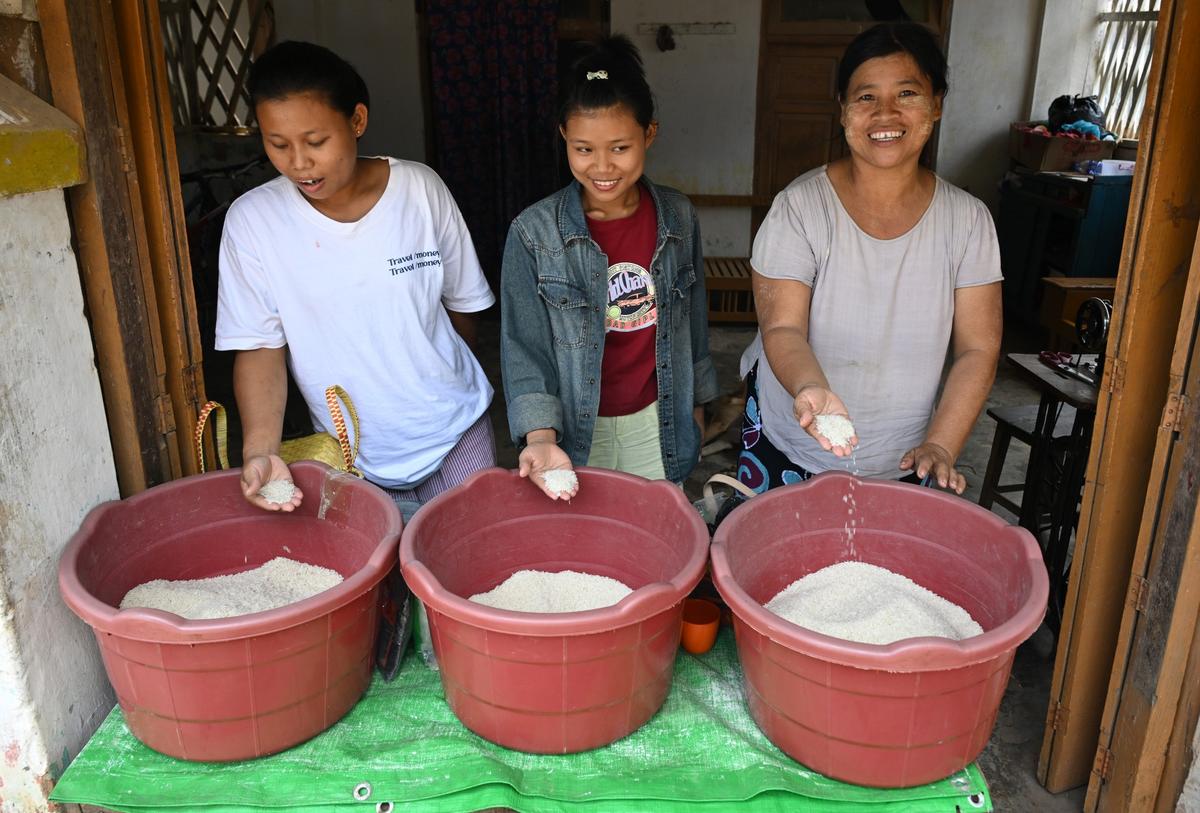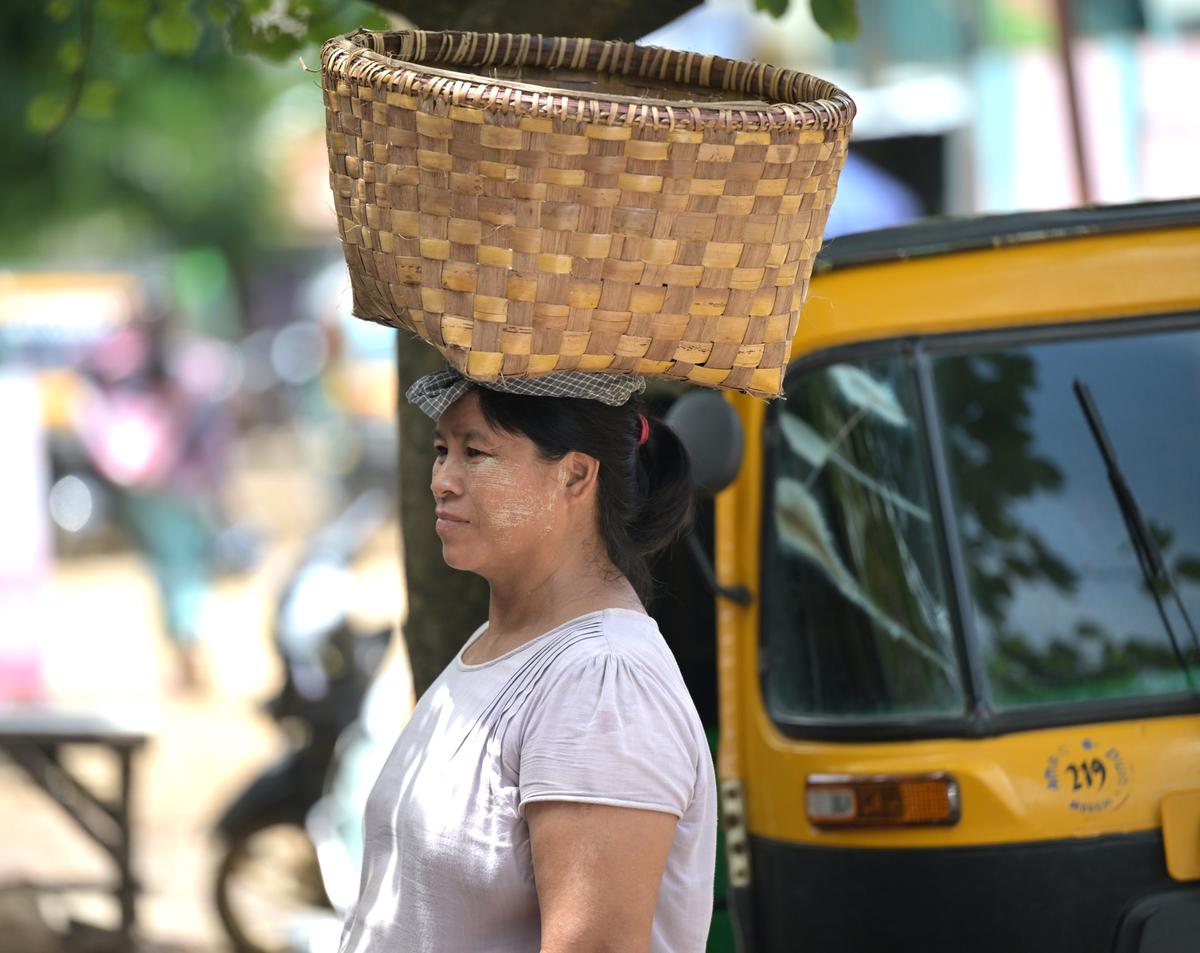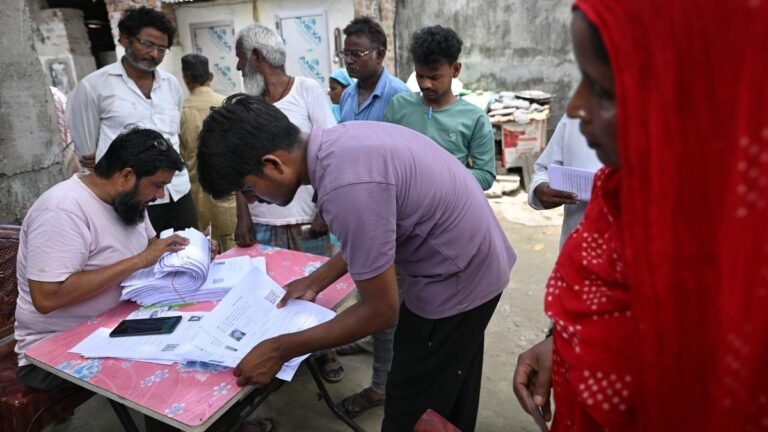
MOREH (Manipur)
A border town in ethnic conflict-scarred Manipur is seeing a faint revival of activity, aided by a few education-seeking children from civil war-affected Myanmar.
A couple of pre-primary schools in Moreh, a town located on the India-Myanmar border, about 110 km southeast of Manipur’s capital Imphal, began enrolling children from Myanmar in January. These schools, which offer free education, are run by the Border Trade & Chamber of Commerce and the Tamil Sangam.
The Tamil Sangam is an association largely comprising descendants of Tamils who fled a crackdown on non-natives following the 1962 military coup in Burma, now Myanmar.
In line with Moreh’s multi-ethnic character, the two organisations established three free educational centres named The All Community Welfare School in 1997. At present, two of these schools are operational.
The third school, in Shantinagar area, was shut down due to a lack of students. Most of its students were Meiteis who left the area with their families after conflict between the Meitei and Kuki-Zo communities broke out on May 3, 2023.
“We did enrol 10 Myanmar students in 2024, but their attendance was erratic due to the situation on either side of the border. The 15 Myanmar students we admitted in January this year have been regular,” Hempao Haokip, headmaster of the school in Ward No. 6, told The Hindu. The school and the Tamil Sangam office are situated about 300 metres from the India-Myanmar border.

In the border town of Moreh, Manipur, many Myanmar women have found a second rhythm to life – following their children to school and trading rice.
| Photo Credit:
RITU RAJ KONWAR
Trading while waiting
The regular attendance of these children, and a few others at the second school in Ward No. 3, is attributed to their mothers, who accompany them to school at 8 a.m. and wait until classes end at 1 p.m.
“A few days after they started accompanying their wards to school, these women sought permission to bring rice, vegetables, and other farm products and utility items to sell while they waited for their children. We relented on humanitarian grounds, particularly as people on either side of the border have suffered because of the collapse of business,” said an officer of the paramilitary Assam Rifles, which guards the India-Myanmar border. The officer spoke on condition of anonymity.
Following these women, other traders from Myanmar – some of Nepalese origin – began entering Moreh to sell goods, operating within a four-hour window. “We wind up by noon to be back home well before sundown,” said one of the traders, who declined to be named.
These traders formerly operated from Namphalong, an abandoned market complex in Myanmar about 100 metres from the Indo-Myanmar Friendship Gate, once the main point of entry and exit for citizens of both countries.
Security personnel posted at the border said cross-border movement became more restricted after the Centre announced in February 2024 that the Free Movement Regime (FMR) between India and Myanmar would be scrapped. The FMR had permitted border residents to travel up to 16 km into each other’s countries without documentation.
The restrictions were eased after the Centre decided in December 2024 to allow cross-border movement for residents up to 10 km from the international boundary. It was also announced that the Assam Rifles would issue “border passes” at 43 designated points to regulate such movement.

Drawn by the promise of education for their children, Myanmar women now walk the markets of Moreh, selling locally-grown goods as they carve out a life across the border.
| Photo Credit:
RITU RAJ KONWAR
A series of blows
Moreh, a key node in the Act East Policy launched in 2014 to deepen India’s economic and strategic ties with Southeast Asia and the Indo-Pacific, was once a thriving commercial town. However, its fortunes declined first with the COVID-19 lockdown in March 2020, and then further after the February 2021 military coup in Myanmar and the outbreak of ethnic conflict in Manipur in 2023.
“A series of setbacks beyond our control has broken the backbone of trade in this once-bustling town. Whatever little trade is happening today is a struggle for survival for people on both sides of the border,” Surinder Singh Patheja, secretary of the Border Trade & Chamber of Commerce said.
Traders in Moreh believe that the Kuki-dominated town can regain its commercial vibrancy only if all stakeholders, including the Meiteis, resume business activity. The Meiteis of Imphal Valley, who once made up 70% of the buyer base, have largely avoided travelling to Moreh since the conflict erupted.
Published – July 27, 2025 07:23 pm IST



